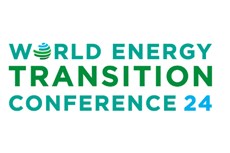CEDIGAZ releases its ‘Medium and Long Term Natural Gas Outlook 2020’
Published by Callum O'Reilly,
Senior Editor
Hydrocarbon Engineering,
CEDIGAZ has released its ‘Medium and Long Term Natural Gas Outlook 2020’, which looks at the prospects for natural gas markets over the period 2019 - 2040.
The CEDIGAZ scenario assumes the effective realisation of official energy plans and climate policy targets. It highlights that natural gas will play a growing role in the world energy mix to meet both the growing energy demand and climate policy targets.
The future expansion of natural gas is underpinned by the development of new resources in gas-rich producing countries, which will expand LNG export capabilities
Natural gas stands as the fastest-growing fossil fuel and expands its market share in the world energy mix from 23% in 2019 to 25% in 2040, while that of coal and oil declines strongly. Asia and the Middle East contribute for 58% and 24%, respectively, of global gas demand growth over the outlook period. China alone accounts for one-third of the incremental demand. The future expansion of natural gas in the energy mix is conditioned on new developments of abundant and low-cost resources in gas-rich countries (North America, Russia, Middle East, etc), which will expand LNG export capacities to meet the growing gas demand, especially in emerging Asian markets. The future growth of natural gas also partly depends on investments in low-carbon gas.
Inter-regional gas trade is expected to grow at a faster rate than demand, by 2.7%/year over the outlook period. Inter-regional pipeline trade is expected to increase by 1.3%/year up to 2040, mainly driven by exports from Russia and Central Asia to China. In Europe, Russian pipeline gas is expected to regain market share in the medium and long-term as global LNG supply tightens and heads towards Asia. LNG trade is forecast to expand much faster than pipeline trade, rising by almost 4%/year up to 2040. The share of LNG in inter-regional flows will progress from 47% in 2019 to 60% in 2040.
A short and longer term impact of the COVID-19 on natural gas demand despite an expected post-pandemic recovery
In the CEDIGAZ scenario (multi-wave pandemic), global gas and energy demand recovers slightly in 2021 before accelerating as the pandemic resorbs. There is both a short and longer term negative impact of the COVID-driven economic crisis on energy and gas demand. These losses mainly involve natural gas transported by pipelines, whereas LNG demand in the medium and long-term is not expected to be affected because of an expected rebound of LNG demand post-2021 in Asia amid abundant and competitive LNG supply.
Long-term growth in gas demand is conditioned by new investments in LNG infrastructure
Despite project delays in the current context of the crisis, post-FID projects should be sufficient to cover global LNG demand until 2025/2026. The LNG market is expected to remain oversupplied in the next three years, before gradually rebalancing as LNG demand in Asia rebounds. LNG will thus play a growing role in both Europe and Asia in the first half of this decade. In the longer term, the centre of gravity of natural gas trade shifts further from Europe to Asia, where emerging markets absorb the bulk of the incremental LNG and pipeline gas supply. European gas imports will fall in parallel with fossil gas demand destruction.
An additional LNG liquefaction capacity of 86 million t is required to cover the global LNG demand by 2030 and this gap rises to 167 million tpy by 2040. Therefore, the future expansion of gas in the next two decades is conditioned on the timely materialisation of investments, especially in the upstream and LNG business, and this represents a key challenge in a context of low oil and gas prices.
Read the article online at: https://www.hydrocarbonengineering.com/gas-processing/12102020/cedigaz-releases-its-medium-and-long-term-natural-gas-outlook-2020/
You might also like
Viridi Energy signs 20-year agreement with Énergir
Viridi Energy, a renewable natural gas (RNG) platform, has signed a 20-year offtake agreement with Énergir, L.P.


